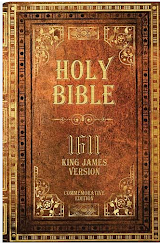 |
| Gladys Parker - 1930 - 17 years old. |
She began by going to Normal, Illinois, where the teachers' college was. Apparently the town was named after the school, since teachers' schools were given that name. That led to a hilarious newspaper headline about a Normal girl being engaged to an Oblong man.
Growing up on a farm where electricity came to them and changed their lives, my mother was always interested in science. Her father earned an agricultural degree at the U. of Illinois but lost the farm during FDR's imperial rule in the Great Depression.
 |
| Gladys Parker - 1931 - Co-ed, probably at Normal. |
A teacher's education meant one year at Normal and teaching in one-room country schools, with all ages packed together. My mother took great pride in her experience in those basic schoolrooms. She was sorry to see consolidation take over.
 |
| Mom graduated from Augustana in 1930. |
As I recall, it took her 10 years to complete her bachelor's at Augustana College in Rock Island, Illinois. My wife, sister-in-law, and I also attended Augustana. Apparently that allowed her to get a job in the Moline system, and the picture below seems to indicate she bought the family home before meeting my father.
 |
| This is our home on 18th Street A, which my mother thought would be great painted red. From that time on I could direct people to our house as across from Wharton Field House, the red one. |
We were just four blocks from Garfield Elementary, so Mom went back to teaching once my little brother was in Kindergarten there. We were surrounded by teachers and education. I was often in the school early, sometimes parked in the school library, and frequently at PTA meetings or teachers' meeting at our home.
Our bedroom wall was papered with maps we could study at our leisure. Guy Johnson, who came over many times, thought the map wall was very cool.
We had books galore in the house. My mother subscribed to several books series for us, and I read them all. In the basement we had some very exotic story books, and she read stories to us at bedtime.
We had quite a few pets: cats, dogs, rats from the schoolroom, two possums, and a skunk named Hilda. Watching feline labor on the kitchen floor is quite an education. Our rats had babies, too, but that was not so dramatic.
The rats proved their cleverness by escaping and retrieving food. I saw Mr. and Mrs. Rat bringing an apple down the stairs together, one above to push, Mr. Rat below to catch, step by step. Another time a hardened slice of bread was carried across the kitchen floor, lifted up and set down, click, click, click. Scandalously, one rat slid out of the cereal box when my brother poured it into his bowl. We called it Rat Krispies, The Only Cereal That Goes Snap, Crackle, and Squeak!
People would ask us if we really had (fill in the animal) living at our house. Some stories were especially fun to tell, depending on the animal and the audience.
Like many teachers at Garfield, my mother was so influential that my friends still talk about her today, roughly 55 years after having her as a teacher in sixth grade. She loved children and loved to teach them. Long after she retired, people in Phoenix would tell me how she was teaching children on her walks.
She read voraciously about:
- South America.
- Strange theories, which were sometimes verified later.
- Velikovski.
- Detective stories.
- Nature and animals. Beneficial bugs, wild flowers, butterflies, moths.
- Rocks and minerals.
- All areas of science.
- The formation of the English language.
When I had to write about the Civil War for a school project, she said, "Try these files." She had an enormous collection, which I used to get an A++ for my two-volume (notebooks) effort. Needless to say, she was always promoting education over sports. She even had one class build a float showing the girls leaving the football star for the scholar.
She published about school projects in educational magazines, about moths in a photography magazine. She wrote books on phonetic reading and spelling skills, just as it was fading away in schools but being picked up in Christian schools.
 |
| My mother got to be a great-grandmother, holding Josephine, wearing a photo button of her. |
Some Anecdotes
Some teachers went to the principal and said, "Gladys is taking a nap in the nurse's office each day!" He responded, "If you came as early as she does every day and stayed as late as she does every day, I would arrange a cot in the nurse's office for each one of you." She repeated that story with great relish.
My mother graded quickly, thoroughly, whenever homework was there to be done. She graded at school and graded at home.
Like the other teachers, she decorated her room for each season. Everything was in packets and in order. She had Thanksgiving, Christmas, and patriotic displays. The other Garfield teachers were equally creative and dedicated. And the same women taught Sunday School at their churches - happy to do it, too.
The son of another teacher was not going to go to the principal's office, and he resisted with all his strength. That was a mistake to resist a teacher who once tossed hay bales on the farm. She dragged him bodily into the principal's office, a spectacle I watched. Mr. T would say, "I pity the fool." My mother swore me to secrecy.
No student got the best of my mother in school, so she was often entrusted with those who were difficult to teach, before alternative schools were started. She said, as a teacher at Coolidge Junior High, "Only if I get permission to hit the kids." The principal almost fainted. "You have to get written permission." She did, and she whacked them when needed.
 |
| This is the Panama project that created an engineer. |
One student who got the rock ring treatment more than once talked about it at the last reunion. I said, "My wife is wearing it." He went over and said, "Hit me with the ring, for old time's sake." She did, and he laughed about how my mother straightened him out and got him involved in engineering from a sixth grade class project on the Panama Canal. He later visited the Panama Canal as an engineer, and told us, "That school project got me interested in engineering. And our project worked exactly like the real thing."
My mother often used the knuckles on the head treatment. That hurt for a time, as I experienced, but was seldom needed after that. It was not the physical punishment that mattered as much as the resolute will behind it.
Although I threw erasers and gum packets at a few college students, I never touched one and never needed to. They soon learned. I heard from college students that I was the only one to enforce discipline in the classroom when someone was disruptive or playing with digital toys. Somehow I got that reputation at four institutions.
I got the spit treatment once. I spit at someone and my mother made me spit into her hand, again and again. Then she rubbed my spit all over my face. That ended the spitting temptation. A friend at a reunion told me about X getting the spit treatment after he spat at another student. Shortly after that, not knowing about the story told me, the spitter said, "You should write a book about your mother. She was a remarkable woman."
I thought that was quite a testimony from someone who could have whined about being mistreated. In those days, parents stood up for teachers. Like my parents, if it was a choice between me and the system, always bet on the system.
 |
| Liz Copeland attended her mother's retirement party. |
 |
| Coach of the year is in the top row - Lawrence Eyre, cited in Sports Illustrated for his tennis teams. He also taught English. |
 |
| Garfield is closed now, but... |









































































































































































































